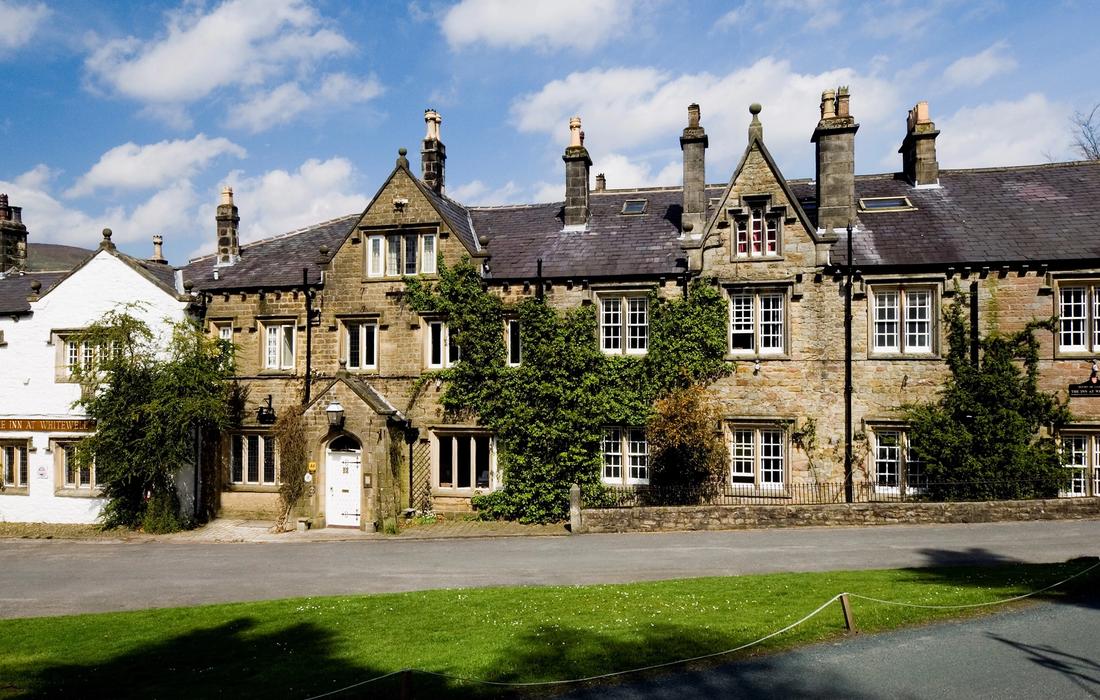The Good Hotel Guide is the leading independent guide to hotels in Great Britain & Ireland, and also covers parts of Continental Europe. The Guide was first published in 1978. It is written for the reader seeking impartial advice on finding a good place to stay. Hotels cannot buy their way into the Guide. The editors and inspectors do not accept free hospitality on their anonymous visits to hotels. All hotels in the Guide receive a free basic listing. A fee is charged for a full web entry.
The Good Hotel Guide
About Us
Independent
Recommended
Trusted
Independent
Recommended
Trusted

Horror stories
All blog posts
4 minutes
17 Aug 2021
Horror stories
All blog posts
4 minutes
17 Aug 2021
By Adam Raphael

Pizza for dinner, room uncleaned, no help with luggage, long waits—horror stories keep on thudding into the Guide’s post box. Take your pick who is to blame. Post Brexit and Covid, life has changed. Complain if you will about staff shortages but we may have to get used to the new normal.
I don’t enjoy writing this because the Guide’s mission is to promote outstanding hotels in Great Britain and Ireland. And, to be fair, most of our selected hotels are coping well and looking after their guests admirably despite a perfect storm caused by rooms packed to capacity, staff isolating after being pinged, and thousands of posts unable to be filled. If you think that I exaggerate the consequences of Brexit and Covid, please have a look at this review. Fortunately, it is about a hotel which was, but is no longer, in the Guide.
‘’My reservation was made months ago. On arrival, I was asked to pay, a first time this has happened. In my room later that evening, I discovered that the bathroom had not been cleaned. I tried to call housekeeping but the phone was broken. By the second evening the bathroom had been cleaned. Otherwise, there was no apparent housekeeping activity during my five-night stay. On Saturday and Sunday, there was a bag of food outside the bedroom. I was told there were no cooked breakfasts at the weekend because ‘the hotel is full’.
The next review from a reader who has been writing to us for many years is about one of the more expensive hotels in the Guide where you can easily spend a thousand pounds a night. ‘After booking by telephone, it took another call and two emails to receive an acknowledgement of our booking. We were promised that our room would be available at 3pm. But when we arrived at 3pm, we had to wait another half an hour to get access.’ At any hotel, but particularly at that price level, there is no excuse for such a poor welcome.
And another unhappy stay: ‘Restaurant service was excruciatingly slow. We arrived for breakfast at the allocated time and waited 30 minutes before even coffee was served. A three course evening meal took two and a half hours. Delightful waitress but she was run off her feet taking orders on her own. Tea bags and biscuits in the bedroom were not replenished daily. We expected more than two tea bags for two people for a two night stay that cost us over £600.’
None of this is, I fear, unexpected. I wrote here a couple of months ago: ‘The lack of staff to cook, wait, clean bedrooms, man reception desks and perform all the myriad of duties involved in running a hotel is now being felt right across the hospitality industry. If you talk to hoteliers, words like ‘catastrophe’ and ‘nightmare’ spill out. For guests, higher prices and longer waits are in store.’ A veteran hotelier wrote to the Guide this week: ‘We are managing in most departments but housekeeping is the big problem and we have been limiting room sales on some nights as a consequence. We advertise on the likes of Facebook and Caterer but most applicants don’t turn up for interviews so I assume they are “applying” to maintain their benefits? Crazy times and unsustainable for the industry if things continue like this.’
On a more positive note, many of the Guide’s selected hotels are dealing with this perfect storm by making themselves more attractive places in which to work. The Devonshire Hotels Group of five hotels, which includes the Devonshire Arms, Bolton Abbey, Yorkshire, has increased its rates of pay, improved working hours, and created more than 30 trainee placements supported by the Government’s Kickstart scheme.
The family-owned Scarlet and Bedruthan hotels in Cornwall have committed to paying all staff, regardless of their age, a minimum hourly rate of £9.50, significantly higher than the government minimum of £8.91 per hour. ‘We believe that paying well should be the foundation of our business, not a short-term fix to the current challenges,’ says Emma Stratton, the owner of the two hotels. ‘We want our guests to make a conscious choice about where they stay, and actively support brands that demonstrate their ethical practices.’
Another much needed reform is limiting the excessive number of hours that hospitality staff have to work in peak periods. The small family-owned pub group, EatDrinkSleep, has taken the decision to restrict its opening times. The Felin Fach Griffin and the Gurnard’s Head are opening for lunch only two days a week through the summer, though their bars will be open all day for passing walkers, and will be serving dinner every day of the week.
Edmund Inkin, one of two brothers who own the pub group, says that staffing is a challenge that will not go away: ‘Replacing the skills of hundreds of thousands of people doesn’t happen overnight. If the Government is not going to change the rules of the game on immigration, the sector has no option but to get back to the basics of training and reskilling its whole workforce.”
To those who say that change in employment practices is overdue in the hospitality industry, I nod in agreement.


